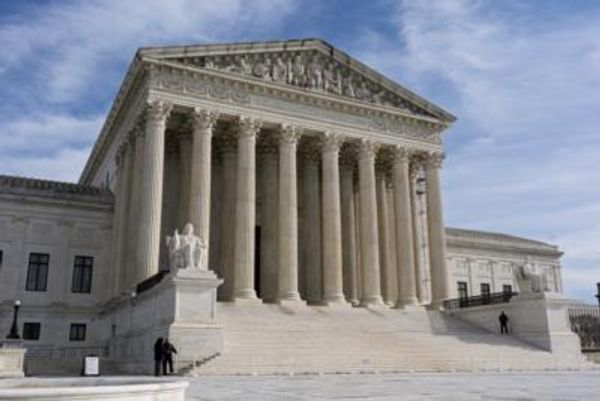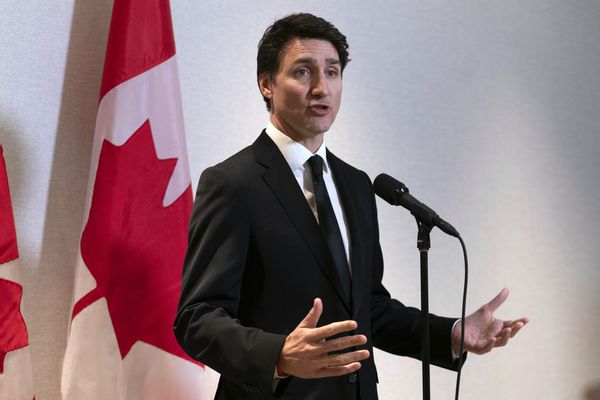
On Mar. 27, President Tsai Ing-wen (蔡英文) spoke to an audience assembled at the Heritage Foundation, a think tank in Washington DC known for its support of conservative policy and its support of Taiwan. Joining her were Senator Cory Gardner and Congressman Ted Yoho. Both are Republicans who are involved in their respective foreign relations subcommittees on East Asia.
According to Tsai, who addressed the Heritage audience through a video feed during a stopover in Hawaii, democratic nations around the world are all facing a common problem: Efforts by undemocratic nations to undermine them. Taiwan is at the forefront of these challenges, facing efforts such as a Chinese campaign to suppress Taiwan’s recognition abroad and the spread of disinformation and fake news.
Despite Taiwan’s best intentions, said Tsai, China is constantly attempting to change the status quo and undermine Taiwan’s democratic institutions. Though Taiwan intends to keep peace and avoid hostility, it also must acquire strength to defend freedom, democracy, and its way of life.

With these “monumental challenges” from across the Taiwan Strait, Tsai maintained that a “pragmatic and responsible” manner is needed to account for the shared interests of the U.S. and Taiwan. This refers to the historical Democratic Progressive Party (DPP) attitude to advance the Taiwan independence agenda at the cost of Chinese backlash. Taiwan seeks reconciliation instead of conflict, Tsai said, but the reality is that Taiwan also needs U.S. help in soft-balancing vis-à-vis China.
Tsai’s attitude mirrors that of the U.S. President Donald Trump’s nominee for Assistant Secretary of State for East Asian and Pacific Affairs, David Stilwell, also expressed a pragmatic, China-confronting attitude at his nomination hearing at the Senate Foreign Relations Committee earlier the same day.
According to Tsai, Taiwan has many needs in its balancing efforts. One is the countering of the Chinese narrative, which has influenced private airlines and companies to label Taiwan as a nominal province of China. Another is the establishment of Taiwan’s defense. Deterrence has been at the core of Taiwan’s policy, according to Tsai, with a focus on maintaining asymmetrical abilities aimed to maximize damage if China invades, rather than building offensive power. Despite the unfortunate necessity of regular arms sales between Taiwan and the U.S., Tsai said, this regularization is now more normalized and less political in provoking China.
Another factor is the alignment of economic interests between Taiwan and the U.S. In her speech, Tsai emphasized that both seek to keep the Indo-Pacific region open and free. Taiwan has aggressively pursued relations with South and Southeast Asian countries via its New Southbound Policy, which seeks to decrease Taiwan’s economic dependence on China. According to Tsai Taiwan needs more regional cooperation and integration. The Comprehensive and Progressive Trans-Pacific Partnership (CPTPP) would be one example of such integration.
Rupert Hammond-Chambers, President of the U.S.-Taiwan Business Council, asked Tsai how Taiwan can advance its economic ties with the U.S. through trade deals. In response, Tsai raises the importance of U.S.-Taiwan bilateral investment and free trade agreements. It would be logical, explains Tsai, for Taiwan’s importance in the high-tech supply chain to feed into the U.S. Hammond-Chambers describes the trade relations between Taiwan and the U.S. as a “strategic glue.”
Senator Gardner brought up the ways the U.S. and Taiwan have strengthened relations, through acts like the Taiwan Relations Act – now approaching its 70th year anniversary – along with others such as the Asia Reassurance Initiative Act (ARIA) of 2018.

Congressman Yoho stressed that although trade is important between the two nations, “more important than trade is share values.” According to Yoho, freedom and liberty is of the utmost importance to both.
Tsai further explains the intention behind the Chinese desire to impose a “one country, two systems” model of governance onto Taiwan. According to Tsai, Hong Kong is an example to the world and to the Taiwanese people that the system would not serve the Taiwanese interest. Though China has offered economic incentives to Taiwan and its citizens, she said, the people of Taiwan must “avoid falling into a trap.” The fact that “almost all Taiwanese are resistant” to this concept as shown by polls is evident. There exists a danger of the “one country two systems” doctrine deteriorating into a system of just “one country,” Tsai said, as shown by the erosion of rights and democratic norms in Hong Kong despite a 50-year guarantee of independent governance.
“Democracy is inherently incompatible with the Chinese system,” Tsai proclaimed. She added that the control of the Chinese Communist Party (CCP) amplifies this incompatibility. “China must be able to work with us over common interests,” she said, while acknowledging simultaneously that “this has not happened.” China’s deliberate unwillingness to cooperate with Taiwan was evident during the outbreak of African swine fever in the beginning of the year.
Overall, despite the roadblocks for Taiwan in defending its democracy against Chinese pressure, Tsai expressed her belief that “U.S. commitment to Taiwan is stronger than ever.”
Indeed, with Trump’s interest in establishing a presence in Asia and confronting China as a direct competitor, Taiwan has benefited from becoming strategically important once again. Senator Gardner noted that there is widespread bipartisan support for Taiwan across both political parties. This sentiment may signal the start of a change in U.S.-Taiwan-China trilateral relations.
Read Next: DPP and KMT Presidential Controversies Reveal Depth of Party Factionalism
Editor: Nick Aspinwall (@Nick1Aspinwall)
If you enjoyed this article and want to receive more like it in your news feed, please be sure to like our Facebook page below.







